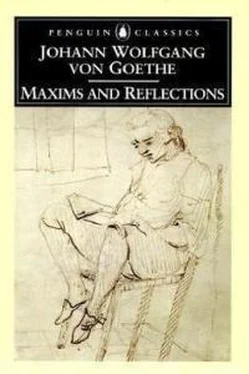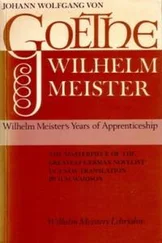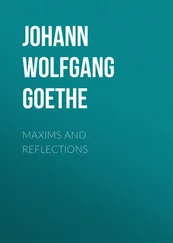523
To communicate knowledge by means of analogy appears to me a process equally useful and pleasant. The analogous case is not there to force itself on the attention or prove anything; it offers a comparison with some other case, but is not in union with it. Several analogous cases do not join to form a seried row: they are like good society, which always suggests more than it grants.
524
To err is to be as though truth did not exist. To lay bare the error to oneself and others is retrospective discovery.
525
With the growth of knowledge our ideas must from time to time be organised afresh. The change takes place usually in accordance with new maxims as they arise, but it always remains provisional.
526
When we find facts within our knowledge exhibited by some new method, or even, it may be, described in a foreign language, they receive a peculiar charm of novelty and wear a fresh air.
527
If two masters of the same art differ in their statement of it, in all likelihood the insoluble problem lies midway between them.
528
The orbits of certainties touch one another; but in the interstices there is room enough for error to go forth and prevail.
529
We more readily confess to errors, mistakes, and shortcomings in our conduct than in our thought.
530
And the reason of it is that the conscience is humble and even takes a pleasure in being ashamed. But the intellect is proud, and if forced to recant is driven to despair.
531
This also explains how it is that truths which have been recognised are at first tacitly admitted, and then gradually spread, so that the very thing which was obstinately denied appears at last as something quite natural.
532
Ignorant people raise questions which were answered by the wise thousands of years ago.
533
When a man sees a phenomenon before him, his thoughts often range beyond it; when he hears it only talked about, he has no thoughts at all.
534
Authority. Man cannot exist without it, and yet it brings in its train just as much of error as of truth. It perpetuates one by one things which should pass away one by one; it rejects that which should be preserved and allows it to pass away; and it is chiefly to blame for mankind's want of progress.
535
Authority—the fact, namely, that something has already happened or been said or decided, is of great value; but it is only a pedant who demands authority for everything.
536
An old foundation is worthy of all respect, but it must not take from us the right to build afresh wherever we will.
537
Our advice is that every man should remain in the path he has struck out for himself, and refuse to be overawed by authority, hampered by prevalent opinion, or carried away by fashion.
538
The various branches of knowledge always tend as a whole to stray away from life, and return thither only by a roundabout way.
539
For they are, in truth, text–books of life: they gather outer and inner experiences into a general and connected whole.
540
An important fact, an ingenious aperçu , occupies a very great number of men, at first only to make acquaintance with it; then to understand it; and afterwards to work it out and carry it further.
541
On the appearance of anything new the mass of people ask: What is the use of it? And they are not wrong. For it is only through the use of anything that they can perceive its value.
542
The truly wise ask what the thing is in itself and in relation to other things, and do not trouble themselves about the use of it,—in other words, about the way in which it may be applied to the necessities of existence and what is already known. This will soon be discovered by minds of a very different order—minds that feel the joy of living, and are keen, adroit, and practical.
543
Every investigator must before all things look upon himself as one who is summoned to serve on a jury. He has only to consider how far the statement of the case is complete and clearly set forth by the evidence. Then he draws his conclusion and gives his vote, whether it be that his opinion coincides with that of the foreman or not.
544
And in acting thus he remains equally at ease whether the majority agree with him or he finds himself in a minority. For he has done what he could: he has expressed his convictions; and he is not master of the minds or hearts of others.
545
In the world of science, however, these sentiments have never been of much account. There everything depends on making opinion prevail and dominate; few men are really independent; the majority draws the individual after it.
546
The history of philosophy, of science, of religion, all shows that opinions spread in masses, but that that always comes to the front which is more easily grasped, that is to say, is most suited and agreeable to the human mind in its ordinary condition. Nay, he who has practised self–culture in the higher sense may always reckon upon meeting an adverse majority.
547
There is much that is true which does not admit of being calculated; just as there are a great many things that cannot be brought to the test of a decisive experiment.
548
It is just for this that man stands so high, that what could not otherwise be brought to light should be brought to light in him.
What is a musical string, and all its mechanical division, in comparison with the musician's ear? May we not also say, what are the elementary phenomena of nature itself compared with man, who must control and modify them all before he can in any way assimilate them to himself?
549
To a new truth there is nothing more hurtful than an old error.
550
The ultimate origin of things is completely beyond our faculties; hence when we see anything come into being, we look upon it as having been already there. This is why we find the theory of emboîtement intelligible.
551
There are many problems in natural science on which we cannot fittingly speak unless we call metaphysics to our aid; but not the wisdom of the schools, which consists in mere verbiage. It is that which was before physics, exists with it, and will be after it.
552
Since men are really interested in nothing but their own opinions, every one who puts forward an opinion looks about him right and left for means of strengthening himself and others in it. A man avails himself of the truth so long as it is serviceable; but he seizes on what is false with a passionate eloquence as soon as he can make a momentary use of it; whether it be to dazzle others with it as a kind of half–truth, or to employ it as a stopgap for effecting an apparent union between things that have been disjointed. This experience at first caused me annoyance, and then sorrow; and now it is a source of mischievous satisfaction. I have pledged myself never again to expose a proceeding of this kind.
553
Everything that we call Invention or Discovery in the higher sense of the word is the serious exercise and activity of an original feeling for truth, which, after a long course of silent cultivation, suddenly flashes out into fruitful knowledge. It is a revelation working from within on the outer world, and lets a man feel that he is made in the image of God. It is a synthesis of World and Mind, giving the most blessed assurance of the eternal harmony of things.
554
A man must cling to the belief that the incomprehensible is comprehensible; otherwise he would not try to fathom it.
555
There are pedants who are also rascals, and they are the worst of all.
556
A man does not need to have seen or experienced everything himself. But if he is to commit himself to another's experiences and his way of putting them, let him consider that he has to do with three things—the object in question and two subjects.
Читать дальше








![Иоганн Гёте - Итальянское путешествие [litres]](/books/398657/iogann-gete-italyanskoe-puteshestvie-litres-thumb.webp)



